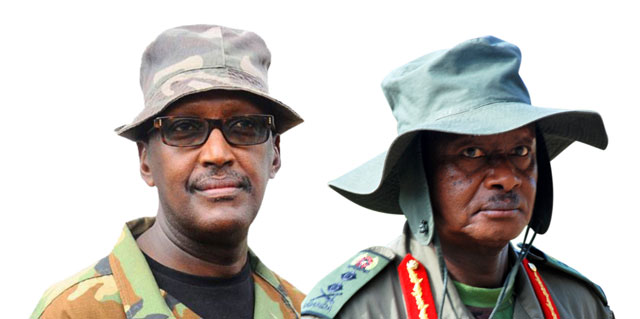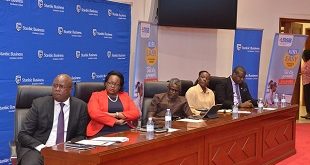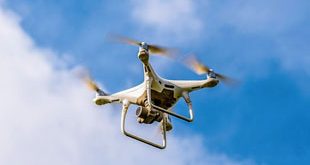
While serving as UPDF Member of Parliament Brig. Henry Tumukunde was punished when he suggested in 2005 that lifting the two-term presidential term limit would not be good for the country’s stability. Immediately Tumukunde was forced to resign as UPDF legislator and later court martialed and placed under house arrest for years.
Another Army MP, Col Fred Bogere abstained during the vote. Bogere was left to serve out his parliamentary term, but he was never deployed again until September 2015 when he was retired from the army alongside Tumukunde.
This selective application of the law applies more so on low ranking soldiers who are seen to be supporting opposition politicians. A recent case is soldier named Collins Muhame at the rank of corporal who was arrested in Fort Portal for expressing open support for NUP presidential aspirant Bobi Wine.
Beware of history
In a book published titled ‘Elections in a Hybrid Regime, Revisiting the 2011 Ugandan Polls,’ several academics in 14 academic papers tackle the issue of the military in Uganda politics.
The top political science professors at Makerere University and other international research bodies appear to agree with Museveni and his supporters; that it is impossible to remove Museveni from power through an election.
Commenting on the role of the military in influencing political outcomes in Uganda, Sabiti Makara, who is one of the editors of the book, notes that Museveni would have to be removed militarily. Makara said this is possibly why the most valued credential that Kizza Besigye boasted when challenged Museveni in the 2001 election was that he was an army officer. He could command an army.
The dons also appeared to argue that by bragging about his stranglehold on the army, Museveni is playing mind games with voters. Showing them that he is stronger and they are weak without an army. They say Museveni threatens post-election violence in case they do not vote him. The dons cite 2010 opinion polls which showed that 59 % of Ugandans were afraid that post-election violence would break out, with 73% opining that losers would reject electoral results.
But another political scientist, Lumumba Bwire, noted that Museveni’s boastful claims of having control of the army make him look like a bad student of Uganda’s political history.
Bwire notes that all eight governments in Uganda, except two, since independence in 1962 have been over-thrown in a military coup.
This has made Uganda the most coup-prone country in the region; with an average of a coup for every six years, before Museveni came to power in a coup in 1986.
Bwire adds that the late former President Milton Obote, who was twice overthrown by the army, had similar false confidence regarding his government’s susceptibility to a military coup.
Writing in 1968 in his ‘Myths and Realities: Letter to a London Friend’, Obote had bragged: “As regards the position of the Ugandan army, I am perhaps the only African leader who is not afraid of a military take over.”
At the time Obote, like Museveni today, had battered the opposition and thought he had outmaneuvered opponents both in the army and his party, UPC. But just two years later, Gen. Idi Amin, an army officer Obote had groomed and put in charge, overthrew him.
Some people think that statements by the likes of Brig. Sande serve to portray the state of affairs in the country.
“I don’t’ see why Ugandans should stress themselves over something as clear as that statement and have no solution over it. Do you honestly believe that we have genuine democracy in Uganda? Do you believe that the Electoral Commission as it is currently composed has the capacity to declare the right winner of the presidential election other than Museveni who appointed them? What did Ugandans do when the army and police prevented Besigye from moving immediately after the rigging of the 2016 elections? In my opinion I think the money spent on presidential elections should have been used to construct a very good hospital in a place like Karamoja because this is a concluded case,” a retired NRM politician who sought anonymity told The Independent.
He added that the military, the police and LDUs have been fused with government and thus exposing them to abuse. “They have been personalized and fused so much that it becomes so difficult to unfuse them from the ruling government. No wonder some of them are seen herding cows of the big people in government”
But while appearing for a meeting with media owners and managers recently, the UPDF Chief of Defence Forces, Gen David Muhoozi, said the statement made by individual soldiers don’t reflect the position of the institution.
Nicolas Opiyo, a human rights lawyer, says Ugandans must pity and not condemn senior army officers like Brig Sande because “they are trapped in the bush war syndrome of we fought syndrome.”
 The Independent Uganda: You get the Truth we Pay the Price
The Independent Uganda: You get the Truth we Pay the Price



Why are you guys blaming this foot soldier? This barking dog/parrot is speaking exactly what he has heard from his master in private military command meetings. It is a total waste of three pages of analysis expressing shock and surprise when we all know where those words came from.
Ok and perhaps, he should not have made such utterances at a time like this.
But and however, being a noble man, he spoke his mind regardlessly, and ere we jump to judgements and irrecoverable comments, it is important that we weigh what is trending especially with neo-political pressure groups.
Take forexample, the use by some pressure group cum political party, of attire similar to the armed forces, what is it intended to do? What are they insinuating? What are they baying for? What is their message to the masses especially those that are their support? What in history has been of those that have used the same in other parts of the world? How did Che end up whose figurative they portray? Don’t we think that it is provocative especially to the armed forces? Why don’t our academicians weigh on both sides point the danger of such a trend which is seen even by the common man?
It would be very naive to subtract armed forces from politics of especially Africa.
Ours is a home grown and unique setting and so is our history, we must not be oblivious of that. It is hard to hold all matters constant and base on one thing.
Let’s have respect and listen to each and every one and not silence or keep aside what others are saying.
It is what has become.
For God And My Country.
I have never come across any thug, gangster/s or armed robbers who handed over to the victims whatever they have successfully robbed.
In other words, didn’t Mr. M7 himself, in broad-day-light tell the world on 26th January 2017; that Ugandans were mistaken if they thought he went to the bush in 1981 to liberate them?
Verbatim, without blinking even once, Mr. Museveni looked into the eyes of his audience and said:
“I’m not an employee. I hear some people saying that I’m their servant; I’m not a servant of anybody. I’m a freedom fighter. That is why I do what do; I’m fighting for myself, for my belief; that’s how I come in. If anybody thinks you gave me a job, he is deceiving himself. I’m just a freedom fighter whom you thought could help you also.”
It is unfortunate that to date many Ugandans continue to misunderstand Mr. M7 and his NRA/M lingua frank, sic concepts like “fundamental change and “freedom fighter”. If they still do then Brig. Deus Sande have finally told them off in the face.
Philip Magogo, a columnist with the Sunday Monitor once wrote and oratorically asked: “If Crime fighters fight crime, and fire fighters fight fire; what do freedom fighter fight?”
1. The “Fundamental Change” rhetoric meant: except Mr. M7 the Supreme Guard, there will be no more change of Guards.
2. “Freedom Fighter” rhetoric meant: on capturing power whoever would be advocating for freedom will be viciously fought.
In a nutshell, for 35 and counting, these Mr. M7 and NRA/M are here fighting Ugandans. Didn’t Mr. M7 himself tell the same stupid Ugandans that he has no friends and they clapped? In other words, if someone publicly say that he does not have any friend, it means he only has enemies, hence the doctrine of “fighting”.
Right from the “author and master of violence”, Mr. Museveni himself; Afande Sande is just one of the many shameless criminals who armed robbed the state Uganda and use the euphemism of liberation. For Hell’s sake, these gangsters came to power, robbing banks, stealing food and killing whoever got in their way.
All the signs and phenomena of Ugandans’ freedom being viciously fought by the regime is written allover the sidewalks, streets, highways and byways.
E.g., in a free country/society the government through police is to protect the citizens from criminals; and the military is to defend the citizens from foreign forces. And the Constitution is to protect the citizens from the government.
But in Uganda, where capital offenders (vicious criminals) are the ones who captured powe in 1986; the police and the military are on the side of a criminal regime. Hence whenever Ugandans tried to express their displeasure and/or demand for freedom, they are confronted and being fought left, right and center; with AK47, machine guns and armored personnel carriers, like some invading foreign army.
there is a new wave called kyagulanyi robert sentamu, it is only fools who can not see the kind of panic it has caused to museveni apologists including andrew mwenda